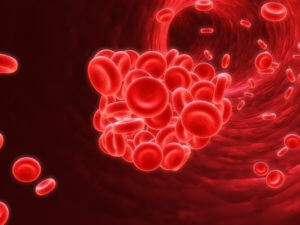How Potassium Could Help Lower Blood Pressure
Around 75 million people in the United States have high blood pressure. Research has indicated that eating a diet that is high in sodium can lead to high blood pressure. So, when you learn that your older adult family member has high blood pressure, your first instinct may be to cut as much salt as possible from their diet. That’s certainly a wise thing to do, but it turns out that another dietary change you may want to make is to increase their potassium intake.

Elder Care in Foley AL: Lower Blood Pressure
Importance of Potassium
Potassium helps to keep blood pressure balanced because it helps the body to eliminate excess sodium. Essentially, the two work together to create something like a pump. As potassium enters cells, it pumps the sodium out. The process is very important to producing energy and keep cells functioning properly. Therefore, the more potassium a person eats, the more sodium the body is able to remove through urine.
Unfortunately, only about 2 percent of Americans get enough potassium through their diets. The recommended amount of potassium per day is 4,700 mg. In contrast, 90 percent of Americans eat in excess of 2,300 mg of salt per day, which is the upper limit for sodium intake. Considering that just one teaspoonful of salt contains 2,400 mg of sodium, it’s pretty easy to underestimate how much sodium a person is eating.
One way to reduce sodium intake is to actually track how much sodium the senior is actually eating. Read food labels and write down the amount of sodium they are getting in each meal. Once you have an idea of where they are getting most of their sodium from, it can be easier to reduce it. Processed and packaged foods are usually a good place to start since they usually contain a large amount of sodium.
Potassium-Rich Foods
To help your aging relative to eat more potassium, try adding some of these foods to their diet:
- Bananas
- Avocados
- Fat-free or low-fat yogurt
- Halibut
- Potatoes
- Tuna
- Mushrooms
- Tomatoes
- Greens
A senior care provider can help your parent to decrease how much salt they eat and increase their potassium intake. Many seniors don’t eat well because they tend to pick whatever is easiest. This can happen because cooking for one person feels like too much of a fuss or because physical or cognitive problems make it too hard. Senior care providers can wash, cut, and chop vegetables. Senior care providers can also help with clean up after the meal. And, if the older adult is no longer able to drive, a senior care provider can even take them to the grocery store and help them read nutrition labels so they can make the best food choices.
If you or someone you know needs Elder Care in Foley AL, please contact the friendly caregivers at Hughes Home Care. We provide quality and affordable care for your elderly loved ones in our community. Call Us Today 251-517-9901. Serving Mobile & Baldwin County.
Sources
https://www.medicalnewstoday.com
- Risk Factors that Increase the Likelihood of Heart Failure - April 11, 2025
- Is it Possible for Seniors to Eat 30 Plants a Week? - March 25, 2025
- Healthy Aging: Why Remaining Active Matters - March 7, 2025
